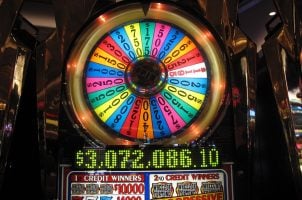Lottery Scams Have Bilked Americans, Canadians Out of $344 Million Since 2015
Posted on: June 6, 2018, 03:00h.
Last updated on: June 6, 2018, 02:09h.
North Americans — including both US and Canadian citizens — have lost more than $344 million to lottery scams and other prize-offering hoaxes over the past three years, according to a new study by the Better Business Bureau (BBB).

The BBB said that between 2015 and 2017, over half a million such swindles had been reported to authorities, although the actual the number of victims may be much higher, as many are too embarrassed to report the crime.
The overwhelming majority of victims are senior citizens, targeted both because they tend to have more disposable income than their younger counterparts, who may still be raising children. The elderly are also often easier to manipulate, especially those suffering from cognitive impairments such as dementia or Alzheimer’s disease.
In a “worst of the worst” example, octogenarian Ted Ruppert of St, Louis lost nearly $8 million in a bogus Jamaican lottery scheme, although the BB reports the average loss to victims at closer to the $500 range.
Cold-Calling Jamaicans
Typically, the scams involve cold calls promising unclaimed lottery winnings or prize giveaways to whoever responds, but contact can also be made via snail mail or email, text, or on social media sites, such as Facebook. Once a target gives up personal information, they’re put on a “suckers list,” according to the BBB, and their details can be –and often are — sold to other scammers, adding to each victim’s potential as a moneymaker.
Although the con originated in Nigeria and Costa Rica, by far the most active scammers targeting the US and Canada today are those based out of Jamaica.
“The skilled fraudsters learn all they can about an elderly victims’ assets and ability to borrow cash, take advances on credit cards, obtain loans on their homes or cars or even cash out stocks or other retirement savings,” says the BBB report.
The scammer may even pretend to put in their own money as an advance to help pay taxes: a proposition which never actually happens, of course.
Another issue that allows these hustlers to operate is by taking advantage of a near-epidemic in loneliness among seniors, who are often alone after losing a spouse.
Scammers send flowers and birthday cards, often calling daily, which may be more contact than the victim has had with anyone nearby in a long time. Victims come to believe the caller is a true friend, and that the relationship they have with them is real.
Buying the Big Lie
According to the report, biggest loser Ted Ruppert was a successful St. Louis businessman. Originally a geological engineer, he consulted on oil drilling and made a fortune in many other businesses, so much so that he even had his own Learjet.
But when he was informed he had won $60 million on the Jamaican lottery, he was reeled in. Initially he was told to send money, so his winnings could be transferred from Jamaica to the US. He didn’t want the money for himself, friends said, he wanted to donate it to the Missouri University of Science and Technology, where he attended college.
Ruppert found himself sending more and more money, for (bogus) taxes and (nonexistent) transactions fees. Even when the FBI got involved, he refused to press charges.
“When people send money, they become invested in the transaction and often believe sending just a little more will produce the money they are promised. This may be true especially when family members, their bank, and local authorities have warned the victim that it is a scam,” explains the report.
“Scammers encourage victims to trust them instead and send more money, reassuring [them that] they are smarter than those attempting to warn them, which will be proven when the funds arrive. Thus, the loss numbers can increase dramatically over time,” the BBB added.
Related News Articles
NeoGames iLottery Growth Could Be Better Bet Than Sports Wagering, Says Analyst
Lottery.com Faces Investor Lawsuit in ‘Deceitful’ Accounting Scandal
Most Popular
FTC: Casino Resort Fees Must Be Included in Upfront Hotel Rates
Genovese Capo Sentenced for Illegal Gambling on Long Island
NBA Referees Expose Sports Betting Abuse Following Steve Kerr Meltdown
UPDATE: Former Resorts World & MGM Grand Prez Loses Gaming License
Most Commented
-
UPDATE: Whiskey Pete’s Casino Near Las Vegas Closes
— December 20, 2024 — 32 Comments -
Caesars Virginia in Danville Now Accepting Hotel Room Reservations
— November 27, 2024 — 9 Comments -
UPDATE: Former Resorts World & MGM Grand Prez Loses Gaming License
— December 19, 2024 — 8 Comments -
FTC: Casino Resort Fees Must Be Included in Upfront Hotel Rates
— December 17, 2024 — 7 Comments
















No comments yet